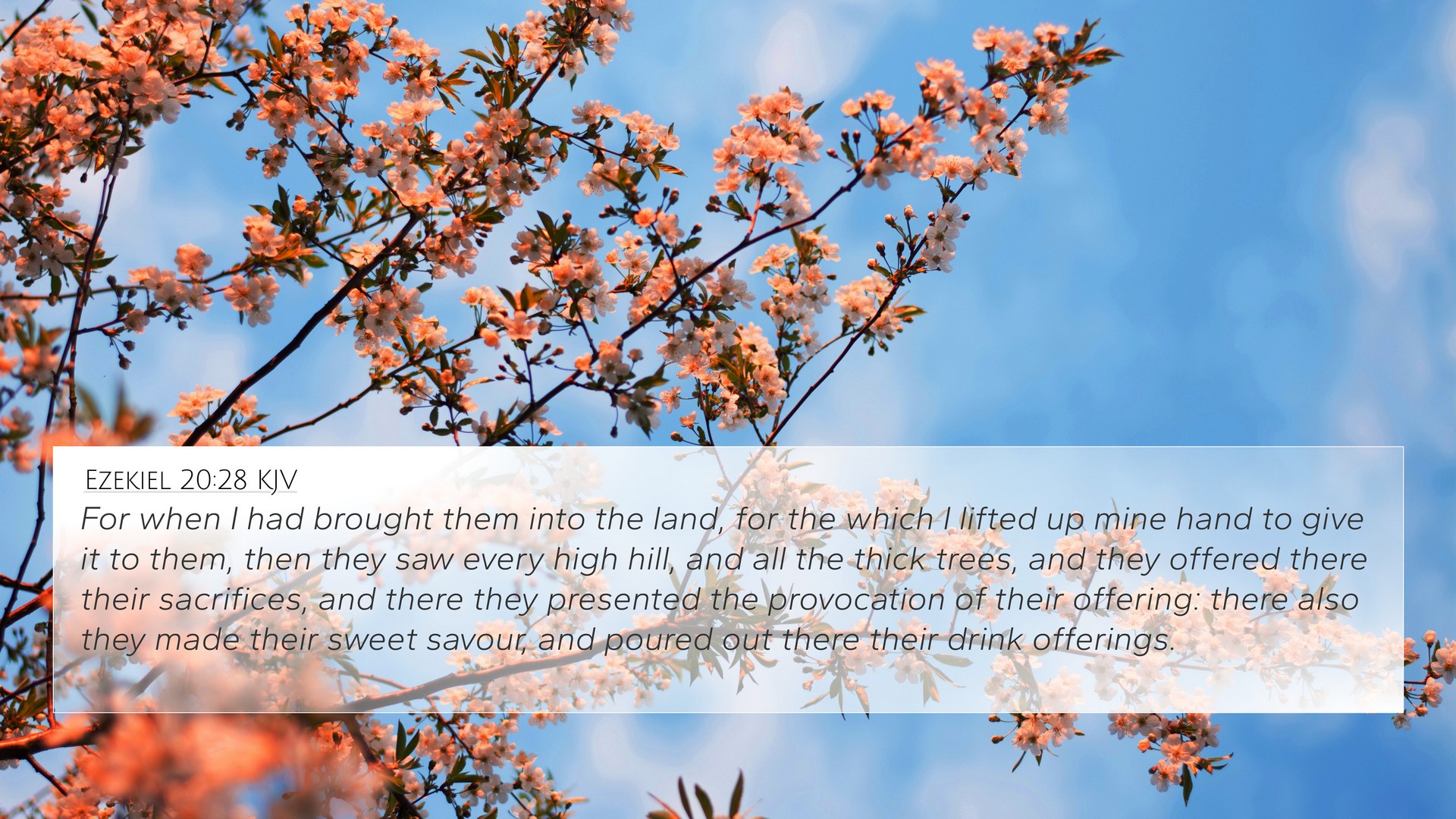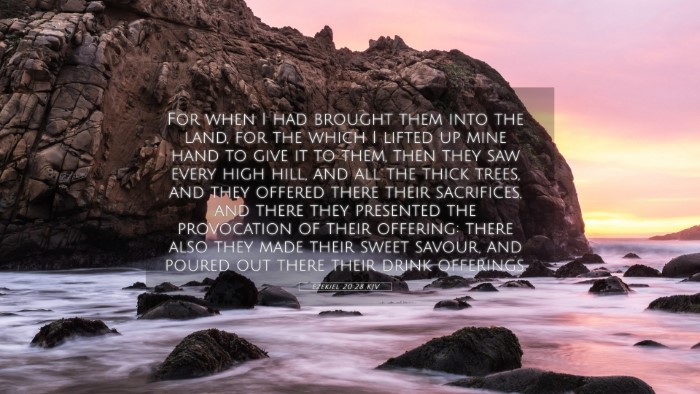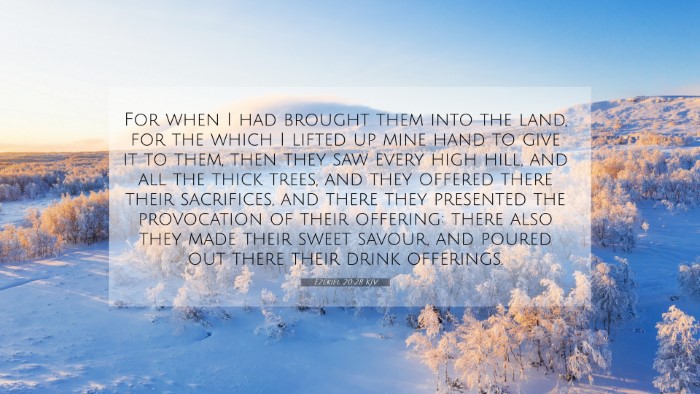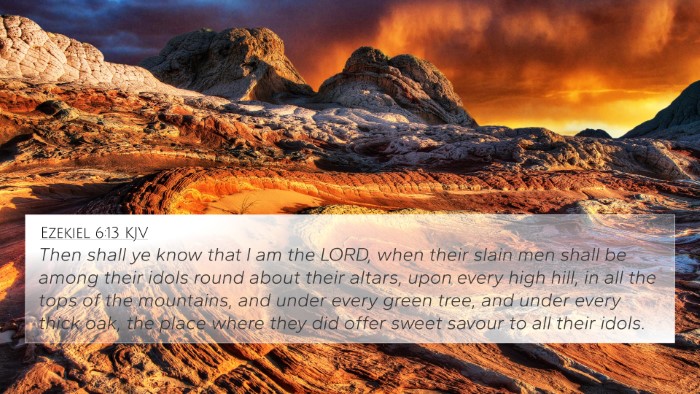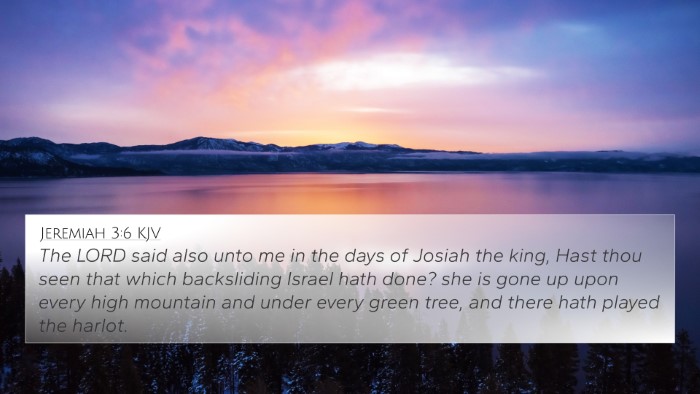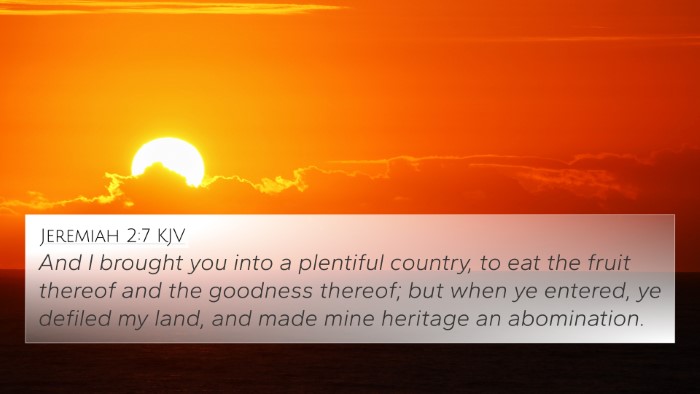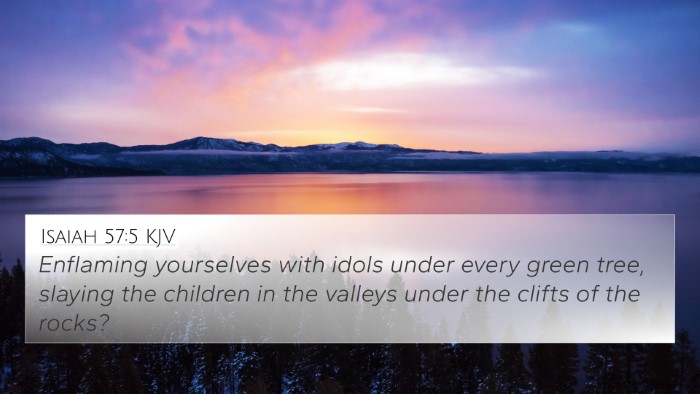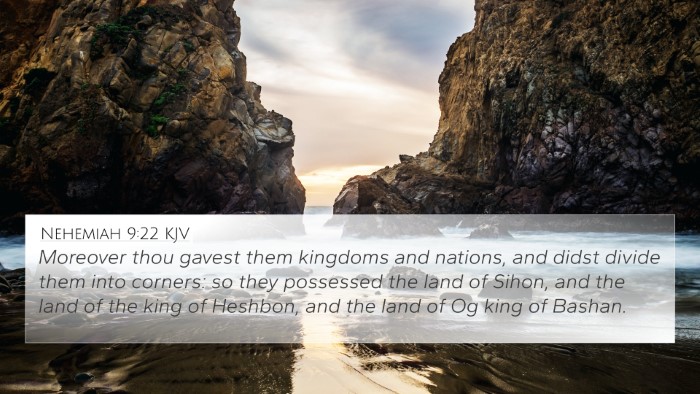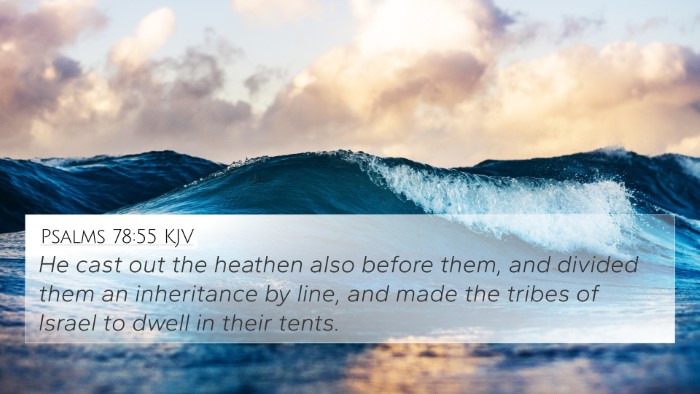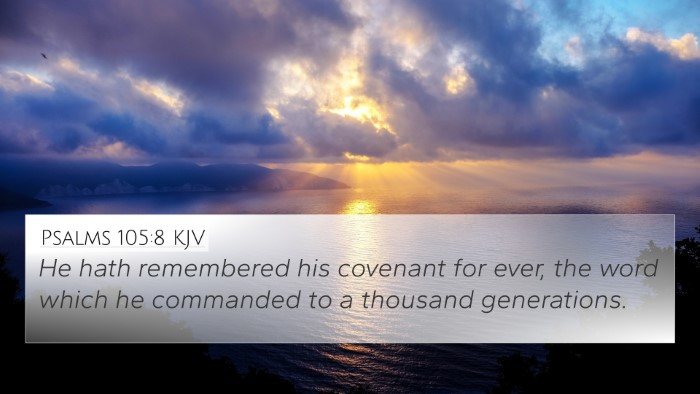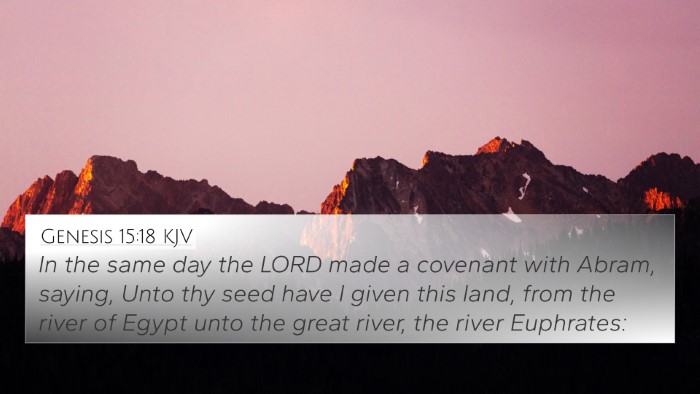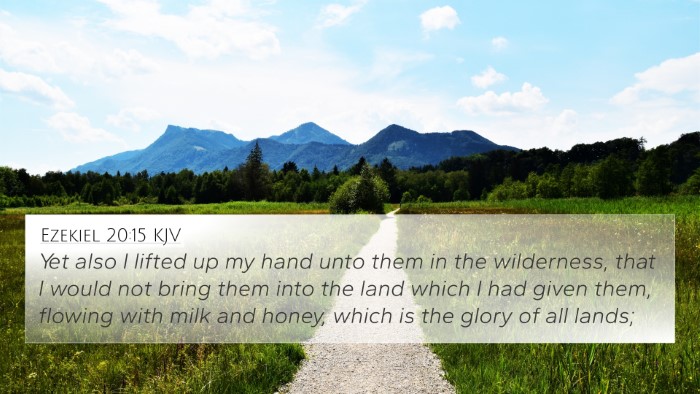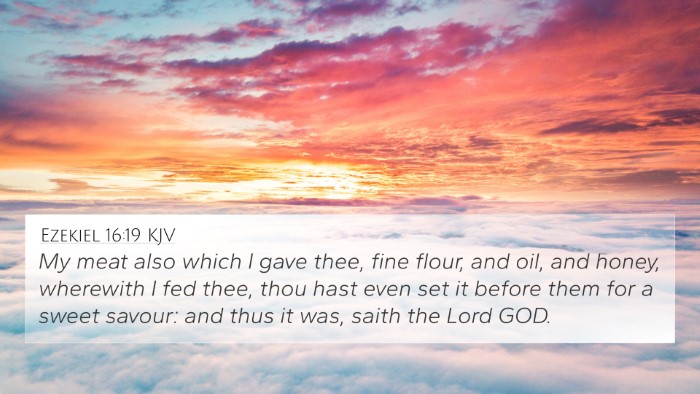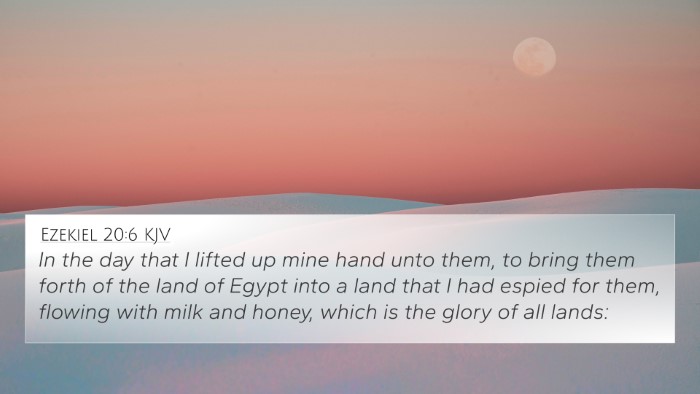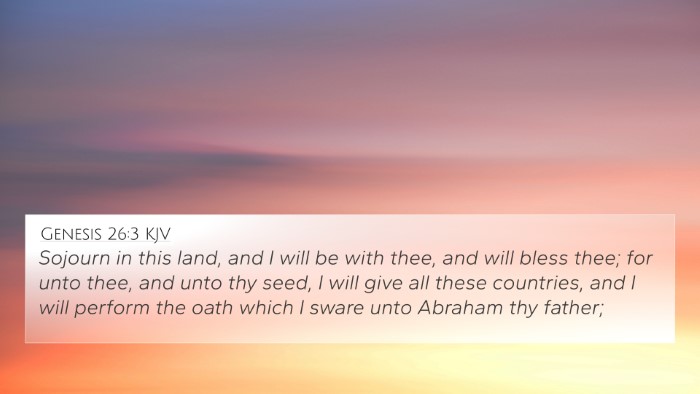Ezekiel 20:28 - Summary and Interpretative Insights
Bible Verse: Ezekiel 20:28
"For when I brought them into the land concerning which I had sworn to give them, then they saw every high hill and every thick tree; and they offered there their sacrifices, and there they presented the provocation of their offering: there also they made their sweet savor and poured out there their drink offerings."
Meaning and Interpretations
The verse captures a significant moment in Israel's history, where God reminds the people of their unfaithfulness upon entering the promised land. The act of offering sacrifices on high hills and under thick trees depicts their departure from true worship, as they engaged in idolatry.
Matthew Henry's Commentary Insight:
Matthew Henry emphasizes the idea of divine promise and human failure. He explains that God's intent in bringing Israel into a blessed land was to showcase His faithfulness, while the people’s actions stood in stark contrast to their vows to God. Their sacrifices on high places reflected their tendency to seek other gods, showing a lack of reverence for the one true God.
Albert Barnes' Commentary Reflection:
Albert Barnes expands on the theme of idolatrous practices. He points out that the choice of high hills for sacrifices was common among surrounding nations, implying that the Israelites, despite God's clear commandments, fell into the trap of cultural assimilation. Barnes also highlights the significance of the 'sweet savor' in sacrifices, noting that such offerings were intended to please God but had, unfortunately, become a means of provoking Him.
Adam Clarke's Perspective:
Adam Clarke further elaborates on the transformative journey of the Israelites. He accentuates the mercy of God in leading them to a land flowing with milk and honey while juxtaposing it against their shameful actions. Clarke suggests that this verse serves as a historical lesson about disobedience and the consequences that follow such choices.
Cross-References and Thematic Connections
This verse identifies several significant cross-references that highlight the thematic unity and narrative coherence within the Bible:
- Deuteronomy 12:2-4: God commands the Israelites to destroy places of idol worship, warning them against high places.
- 1 Kings 14:23: The mention of high places in Judah serves as a reminder of the idolatry present even during the reigns of kings.
- Psalm 78:58: This verse describes God's anger towards Israel's idol-worship, emphasizing their provocation.
- Jeremiah 2:20: The verse illustrates Israel’s defiance and unfaithfulness, echoing Ezekiel's sentiments about high places.
- Hosea 4:13: Like Ezekiel, Hosea criticizes the worship practices at high hills, which became notorious among the Israelites.
- Acts 7:41: Stephen recounts Israel's history, emphasizing their inclination towards idol worship after the Exodus.
- Romans 1:25: This New Testament reference explains the consequences of exchanging the truth of God for lies, linking it back to Israel’s transgressions.
- James 1:14-15: These verses discuss the process of temptation and yielding to desires, parallel to Israel's choices in worship.
- Ephesians 5:5: The New Testament warns against idolatry, echoing the lessons learned from Ezekiel’s time.
- Revelation 22:15: Points to the future exclusion of idolaters from God’s presence, a stern reminder of God’s holiness.
Conclusion
This examination of Ezekiel 20:28 reveals deeper insights into themes of fidelity, divine blessing, and the dire consequences of idolatry. Through cross-referencing biblical texts and analyzing them in context, believers can see the significance of obedience and the dangers of compromise. Utilizing tools for Bible cross-referencing such as concordances and cross-reference guides can enhance one’s understanding and engagement with scripture.
Related Keywords
For those seeking deeper understanding through Bible verse cross-references or identifying connections between Bible verses, this verse serves as a pivotal link illustrating the need for fidelity to God amidst cultural influences. By exploring linking Bible scriptures and thematic Bible verse connections, one can gain profound insights into God's consistent call for worship in spirit and truth.
